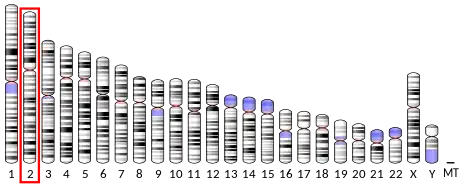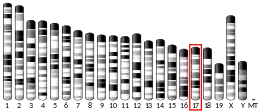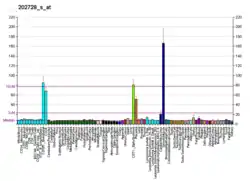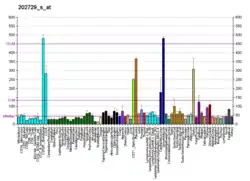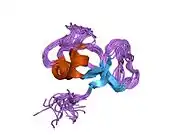| LTBP1 | |||||||||||||||||||||||||||||||||||||||||||||||||||
|---|---|---|---|---|---|---|---|---|---|---|---|---|---|---|---|---|---|---|---|---|---|---|---|---|---|---|---|---|---|---|---|---|---|---|---|---|---|---|---|---|---|---|---|---|---|---|---|---|---|---|---|
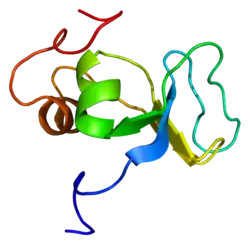 | |||||||||||||||||||||||||||||||||||||||||||||||||||
| |||||||||||||||||||||||||||||||||||||||||||||||||||
| Identifiers | |||||||||||||||||||||||||||||||||||||||||||||||||||
| Aliases | LTBP1, latent transforming growth factor beta binding protein 1 | ||||||||||||||||||||||||||||||||||||||||||||||||||
| External IDs | OMIM: 150390 MGI: 109151 HomoloGene: 522 GeneCards: LTBP1 | ||||||||||||||||||||||||||||||||||||||||||||||||||
| |||||||||||||||||||||||||||||||||||||||||||||||||||
| |||||||||||||||||||||||||||||||||||||||||||||||||||
| |||||||||||||||||||||||||||||||||||||||||||||||||||
| |||||||||||||||||||||||||||||||||||||||||||||||||||
| |||||||||||||||||||||||||||||||||||||||||||||||||||
| Wikidata | |||||||||||||||||||||||||||||||||||||||||||||||||||
| |||||||||||||||||||||||||||||||||||||||||||||||||||
Latent-transforming growth factor beta-binding protein 1 is a protein that in humans is encoded by the LTBP1 gene.[5][6][7]
The protein encoded by this gene belongs to the family of latent TGF-beta binding proteins (LTBPs). The secretion and activation of TGF-betas is regulated by their association with latency-associated proteins and with latent TGF-beta binding proteins. The product of this gene targets latent complexes of transforming growth factor beta to the extracellular matrix, where the latent cytokine is subsequently activated by several different mechanisms. Alternatively spliced transcript variants encoding different isoforms have been identified.[7]
Interactions
LTBP1 (gene) has been shown to interact with TGF beta 1.[8]
References
- 1 2 3 GRCh38: Ensembl release 89: ENSG00000049323 - Ensembl, May 2017
- 1 2 3 GRCm38: Ensembl release 89: ENSMUSG00000001870 - Ensembl, May 2017
- ↑ "Human PubMed Reference:". National Center for Biotechnology Information, U.S. National Library of Medicine.
- ↑ "Mouse PubMed Reference:". National Center for Biotechnology Information, U.S. National Library of Medicine.
- ↑ Kanzaki T, Olofsson A, Moren A, Wernstedt C, Hellman U, Miyazono K, Claesson-Welsh L, Heldin CH (July 1990). "TGF-beta 1 binding protein: a component of the large latent complex of TGF-beta 1 with multiple repeat sequences". Cell. 61 (6): 1051–1061. doi:10.1016/0092-8674(90)90069-Q. PMID 2350783. S2CID 54376541.
- ↑ Oklu R, Hesketh R (January 2001). "The latent transforming growth factor beta binding protein (LTBP) family". Biochem J. 352 (3): 601–10. doi:10.1042/0264-6021:3520601. PMC 1221494. PMID 11104663.
- 1 2 "Entrez Gene: LTBP1 latent transforming growth factor beta binding protein 1".
- ↑ Saharinen, J; Keski-Oja J (August 2000). "Specific sequence motif of 8-Cys repeats of TGF-beta binding proteins, LTBPs, creates a hydrophobic interaction surface for binding of small latent TGF-beta". Mol. Biol. Cell. 11 (8): 2691–704. doi:10.1091/mbc.11.8.2691. ISSN 1059-1524. PMC 14949. PMID 10930463.
Further reading
- Saharinen J, Hyytiäinen M, Taipale J, Keski-Oja J (2000). "Latent transforming growth factor-beta binding proteins (LTBPs)--structural extracellular matrix proteins for targeting TGF-beta action". Cytokine Growth Factor Rev. 10 (2): 99–117. doi:10.1016/S1359-6101(99)00010-6. PMID 10743502.
- Keski-Oja J, Koli K, von Melchner H (2005). "TGF-beta activation by traction?". Trends Cell Biol. 14 (12): 657–659. doi:10.1016/j.tcb.2004.10.003. PMID 15564041.
- Stenman G, Sahlin P, Olofsson A, et al. (1994). "Assignment of the gene encoding the latent TGF-beta 1-binding protein (LTBP1) to human chromosome 2, region p12→q22". Cytogenet. Cell Genet. 66 (2): 117–119. doi:10.1159/000133680. PMID 8287682.
- Olofsson A, Ichijo H, Morén A, et al. (1996). "Efficient association of an amino-terminally extended form of human latent transforming growth factor-beta binding protein with the extracellular matrix". J. Biol. Chem. 270 (52): 31294–31297. doi:10.1074/jbc.270.52.31294. PMID 8537398.
- Saharinen J, Taipale J, Keski-Oja J (1996). "Association of the small latent transforming growth factor-beta with an eight cysteine repeat of its binding protein LTBP-1". EMBO J. 15 (2): 245–53. doi:10.1002/j.1460-2075.1996.tb00355.x. PMC 449939. PMID 8617200.
- Taipale J, Saharinen J, Hedman K, Keski-Oja J (1996). "Latent transforming growth factor-beta 1 and its binding protein are components of extracellular matrix microfibrils". J. Histochem. Cytochem. 44 (8): 875–89. doi:10.1177/44.8.8756760. PMID 8756760.
- Nunes I, Gleizes PE, Metz CN, Rifkin DB (1997). "Latent transforming growth factor-beta binding protein domains involved in activation and transglutaminase-dependent cross-linking of latent transforming growth factor-beta". J. Cell Biol. 136 (5): 1151–1163. doi:10.1083/jcb.136.5.1151. PMC 2132473. PMID 9060478.
- Karonen T, Jeskanen L, Keski-Oja J (1997). "Transforming growth factor beta 1 and its latent form binding protein-1 associate with elastic fibres in human dermis: accumulation in actinic damage and absence in anetoderma". Br. J. Dermatol. 137 (1): 51–58. doi:10.1111/j.1365-2133.1997.tb03700.x. PMID 9274625.
- Dallas SL, Keene DR, Bruder SP, et al. (2000). "Role of the latent transforming growth factor beta binding protein 1 in fibrillin-containing microfibrils in bone cells in vitro and in vivo". J. Bone Miner. Res. 15 (1): 68–81. doi:10.1359/jbmr.2000.15.1.68. PMID 10646116. S2CID 10766165.
- Saharinen J, Keski-Oja J (2000). "Specific sequence motif of 8-Cys repeats of TGF-beta binding proteins, LTBPs, creates a hydrophobic interaction surface for binding of small latent TGF-beta". Mol. Biol. Cell. 11 (8): 2691–704. doi:10.1091/mbc.11.8.2691. PMC 14949. PMID 10930463.
- Ludbrook SB, Barry ST, Delves CJ, Horgan CM (2003). "The integrin alphavbeta3 is a receptor for the latency-associated peptides of transforming growth factors beta1 and beta3". Biochem. J. 369 (Pt 2): 311–8. doi:10.1042/BJ20020809. PMC 1223078. PMID 12358597.
- Isogai Z, Ono RN, Ushiro S, et al. (2003). "Latent transforming growth factor beta-binding protein 1 interacts with fibrillin and is a microfibril-associated protein". J. Biol. Chem. 278 (4): 2750–2757. doi:10.1074/jbc.M209256200. PMID 12429738.
- Strausberg RL, Feingold EA, Grouse LH, et al. (2003). "Generation and initial analysis of more than 15,000 full-length human and mouse cDNA sequences". Proc. Natl. Acad. Sci. U.S.A. 99 (26): 16899–16903. Bibcode:2002PNAS...9916899M. doi:10.1073/pnas.242603899. PMC 139241. PMID 12477932.
- Gui Y, Murphy LJ (2004). "Interaction of insulin-like growth factor binding protein-3 with latent transforming growth factor-beta binding protein-1". Mol. Cell. Biochem. 250 (1–2): 189–195. doi:10.1023/A:1024990409102. PMID 12962157. S2CID 6372795.
- Weikkolainen K, Keski-Oja J, Koli K (2004). "Expression of latent TGF-beta binding protein LTBP-1 is hormonally regulated in normal and transformed human lung fibroblasts". Growth Factors. 21 (2): 51–60. doi:10.1080/08977198310001598778. PMID 14626352. S2CID 42812652.
- Shariat SF, Kattan MW, Traxel E, et al. (2004). "Association of pre- and postoperative plasma levels of transforming growth factor beta(1) and interleukin 6 and its soluble receptor with prostate cancer progression". Clin. Cancer Res. 10 (6): 1992–1999. doi:10.1158/1078-0432.CCR-0768-03. PMID 15041717.
This article is issued from Wikipedia. The text is licensed under Creative Commons - Attribution - Sharealike. Additional terms may apply for the media files.
